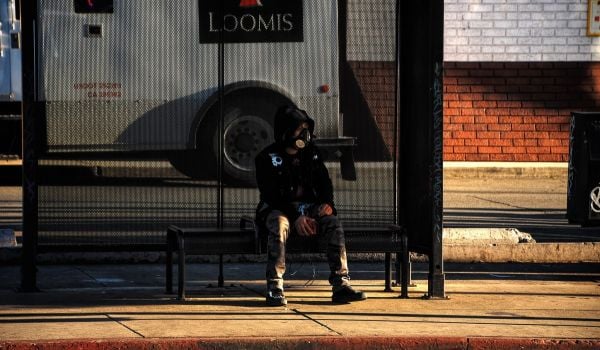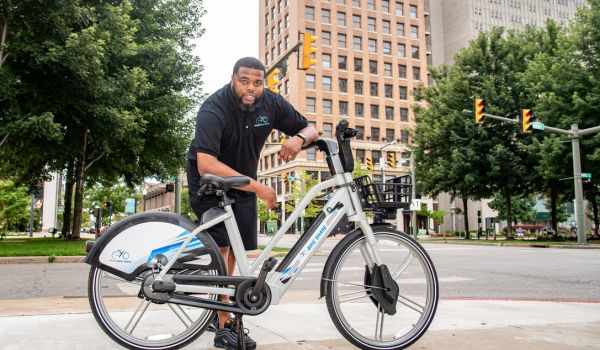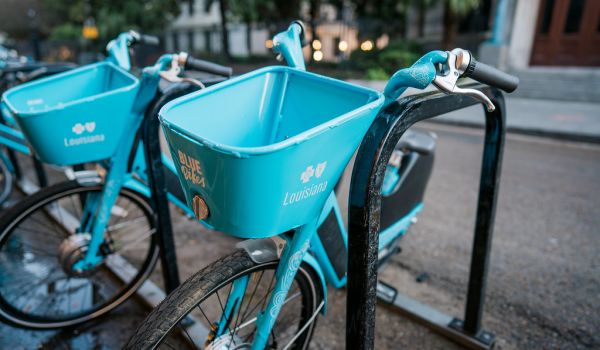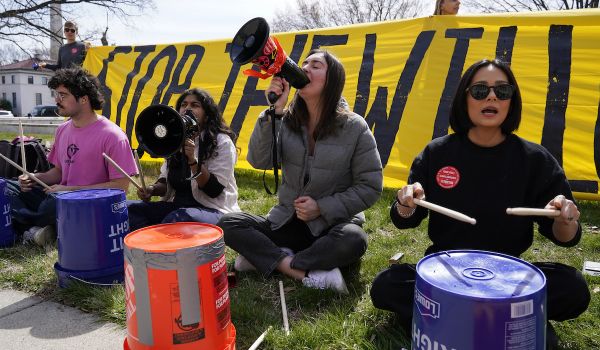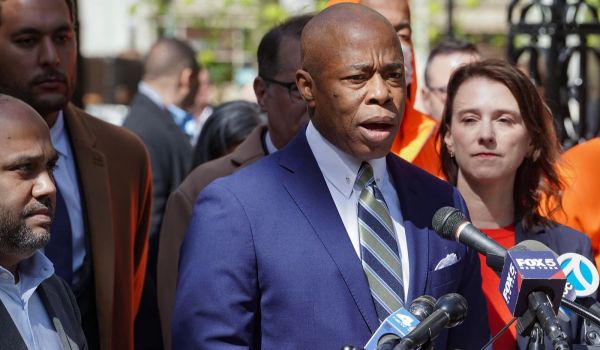U.S. cities cannot get enough of bike-share. When its Indego system launches next week, Philadelphia will be the 53rd metro area in the country with modern, IT-based bike-share. Bike advocates and city officials laud the slow and sturdy bikes as solutions to the “last mile” problem, a tool to boost the number of bicyclists and a way to normalize biking as transportation. But modern U.S. bike-sharing has been around for less than a decade and there are plenty of kinks to still work out, especially when it comes to management and operation structure and funding. For San Antonio, Texas’ B-Cycle system, solving the funding question soon could be a matter of survival.
Since its launch in 2011, San Antonio B-Cycle has operated primarily off revenue from annual memberships and daily user fees, with some small grants from foundations and contributions from minor sponsors, a financial model that left them nearly $32,000 in the red in 2013. Like many systems, San Antonio has a nonprofit, San Antonio Bike Share, in charge of operations and contracts with a bike-share company, B-Cycle, to maintain the bikes and stations. But unlike New York, Seattle and others who’ve garnered multimillion-dollar sponsorship for bike-share from companies such as Citibank and Alaska Airlines, San Antonio has been unable to secure a marquee backer. After local magazine the Rivard Report broke the story last week, bike-share officials announced they will have to scale back or cease operations if they cannot find corporate support.
Neither officials from San Antonio Bike Share nor the City of San Antonio bike program responded to emails and phone calls requesting comment.
San Antonio B-Cycle’s executive director position is unpaid. Executive Director Cindi Snell, who owns three bike shops in town, told the Report that she’s frustrated and stepping down from her role after four years of unsuccessfully courting major sponsors.
The news comes on the heels of the Texas Department of Transportation awarding San Antonio B-Cycle a $1.2 million grant to expand the 53-station, 450-bike system to 76 stations and 650 bikes. San Antonio launched its initial system using federal grant funding from the Centers for Disease Controls Communities Putting Prevention to Work program and the Department of Energy. They expanded the system in 2013 with a Federal Transit Administration grant. Those grants primarily funded the purchase and installation of stations and bikes and do not cover operating costs.
Snell says a corporate sponsor paying $500,000 annually for three years in exchange for branding on every bike would allow San Antonio B-Cycle to hire a paid executive director, cover operations and move forward with the TXDOT-funded expansion.
Not all successful bike-share programs rely on corporate sponsorship, however. The rear fenders on Capital Bikeshare (CaBi) bikes in Washington, D.C., are conspicuously clear of logos. Instead, operating costs not covered by daily and annual users are paid for by DOTs in the city, Alexandria, Arlington County and Montgomery County. The municipalities see bike-share as a form of public transportation that, like subways, buses and private vehicles, needs public subsidy to close the gaps left by user fees.
Adrian Lipscombe is Austin’s bicycle coordinator and a former San Antonio city planner who helped get the bike-share program off the ground. (She was also a 2014 Next City Vanguard.) She says whether bike-share is treated as public transportation or private recreation is, “the million-dollar question” cities have to answer in order to get involved. “I really do believe if it’s going to be seen as a mode of transportation, then the city does need to be involved. It’s helping develop the fabric of their transportation system.”
To date, the city of San Antonio and surrounding regional governments have not provided funding for bike-share. In a Facebook post announcing the need for corporate sponsorship, San Antonio B-Cycle noted, “Bike share is like any other form of public transportation, it needs to be subsidized.”
The debate over the best way to pay for bike-share or whether to frame it as transportation or recreation is far from settled. Citibike’s sponsor-reliant, for-profit model has struggled financially. Lipscombe says Austin B-Cycle turned a profit last year (a rarity among bike-shares) thanks in part to record ridership during South by Southwest. CaBi’s city-subsidized model is generally viewed as a success and also evidence that bike-share can be both a commute mode for locals and a tourist draw for visitors cruising the National Mall. Though nonmembers account for only 20 percent of CaBi’s rides, they take 81 percent of the expensive, revenue-generating trips lasting longer than 30 minutes.
Lipscombe says bike-share’s situation is somewhat analogous to streetcars. “In the beginning, streetcars were developed through private entities. If we’re going to really look at bike-share as an alternative mode of transportation, we need to consider that maybe there does need to be some type of funding to support it, whether private or public.”
Ultimately, modern American bike-share is still in its infancy. Launched in 2008, CaBi’s short-lived predecessor Smart Bike was the country’s first next-generation system with computer-controlled docking stations. It’s little surprise nobody has figured out one best way to do things in just seven years. But San Antonio B-Cycle has made it clear that bike-share cannot survive on ridership alone.
The Works is made possible with the support of the Surdna Foundation.

Josh Cohen is Crosscut’s city reporter covering Seattle government, politics and the issues that shape life in the city.
Follow Josh .(JavaScript must be enabled to view this email address)




